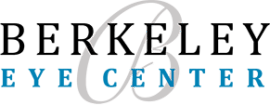An Alternative to Readers – Treatment Options
Why is My Near Vision Changing?
Beginning in our 40’s and 50’s, we begin to notice that our near vision is becoming blurry, making it difficult to see up close. We struggle to focus while reading a menu at a restaurant, reading the newspaper, and even using our mobile phones, so we become dependent on our reading glasses. This natural loss of reading vision is called presbyopia, and eventually effects all of us, even if we never needed corrective lenses before.
What Causes Presbyopia?
The eye’s natural lens is flexible, and works similarly to a camera lens, adjusting our focus from distance to near. However, as we age, this lens becomes less flexible, unable to adjust your focus to help you see properly up close. To compensate for this, reading glasses are needed more often for everyday tasks.
What Are My Options?
Many people that experience presbyopia become frustrated with the hassle of using reading glasses, and more interested in refractive surgeries such as LASIK and PRK. While these procedures can correct vision problems such a nearsightedness, farsightedness, and astigmatism, there are reading glasses alternatives available that are specifically designed to help correct near vision, including Refractive Lens Exchange and Monovision. At Berkeley Eye Center, we want to help determine the procedure that is right for you, to help you achieve your best vision.
Dr. Caplan Discusses Treatment Options
Refractive Lens Exchange
For patients that wish to reduce their dependence on reading glasses, that have lost some distance vision function as well, Refractive Lens Exchange may be an option for you. Refractive Lens Exchange is a procedure in which the eyes natural lens is removed, and an intraocular lens is implanted. There are a number of different intraocular lens options that can help provide patients with correction both distance and near vision, reducing the need for glasses. To learn more about Refractive Lens Exchange, click here.
Monovision
Monovision is an effective alternative to reading glasses for some patients that are experiencing the effects of presbyopia, and can be achieved through contact lenses or through refractive surgery. A persons dominant eye, which can be determined upon examination, is corrected for distance vision, while their non-dominant eye is corrected for near vision. The brain is able to make these changes automatically, without any conscious effort or awareness. Monovision makes it possible to repeatedly change the range of focus, without having to constantly remove or add corrective lenses. To learn more about Monovision, click here.
To schedule an appointment, please call our office at 713-526-1600 or schedule appointment
